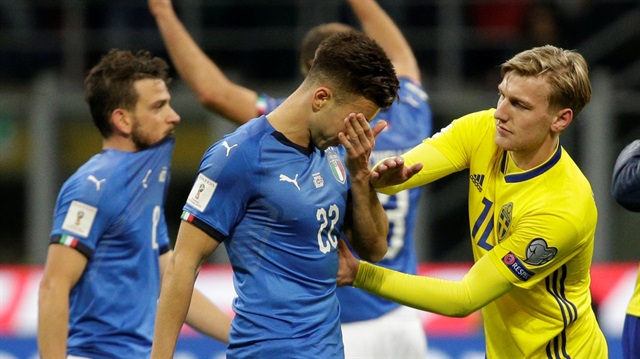
While newspapers laid the blame squarely on team coach Gian Piero Ventura and soccer federation chief Carlo Tavecchio, some fans thought the failure reflected wider problems.
"This match mirrors our country which is falling apart," said a disappointed Stefano Martufello as he left the San Siro.
Italy is slowly recovering from a prolonged recession, but most people say they see no sign of the pick-up, with wages stagnant and unemployment stuck above 11 percent. On the political front, opinion polls predict that parliamentary elections due by next May will result in a deadlock.
Governments normally hope that the feel-good factor from sporting triumphs feeds over into the political sphere.
In the wake of Monday's downfall, the normally busy Twitter feeds of ruling politicians were quiet, while some opposition leaders sought to score quick points.
"There are too many foreigners on (our) pitches, from youth teams to Serie A and this is the result," said Matteo Salvini, head of the anti-immigrant Northern League, echoing criticism in far-right quarters over the space given in sport to outsiders.
"STOPTHEINVASION. Give more room to Italian lads," he wrote, drawing hundreds of largely negative comments on his Twitter feed.
Italy last won the World Cup in 2006, but exited at the group stage in 2010 and 2014 after lacklustre displays. This latest setback showed how far the team have drifted from their peak, belying the widespread expectation that they would have eased past Sweden.
"For years I've had this feeling that Italian football is a little like Italy itself, which lives a lot in the past when the reality is that it finds itself dealing with things that are quite intense, even shocking," said Matteo Maragnano, peeling oranges in a cafe near Milan's gothic cathedral.
Grasping for silver linings, newspaper commentators recognised that the Italian team was weak and would not have got very far in Russia.
"The only consolation is that we would have made utter fools of ourselves at the finals," La Stampa said.


